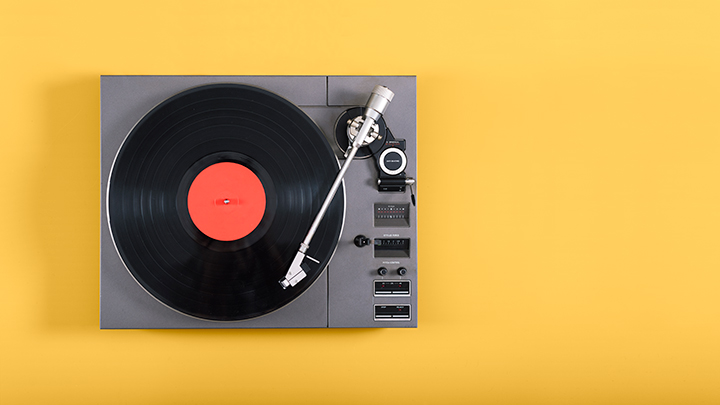The Future of Wearable Technology in Healthcare
Volt News- Wearables such as the Apple Watch have been increasingly tailored to the wellness and health sector in recent years.
- Social trends such as self-optimization are driving demand for smart healthcare.
- Now, wearable technology is likely to be used not only for personal health, but also for the healthcare sector.
"Apple leaves the Swiss watch industry behind" read the headlines, when estimates of the sales figures for the Apple Watch were revealed. Even if the comparison with the tradition-rich Swiss watch industry may be lopsided for some - with approximately 100 million units sold, Apple is positioning itself as a pioneer in the market, at least when it comes to smartwatches. It is just one of the many "wearables" that exist today. Their potential applications in the wellness and health sectors in particular are driving sales of wearable technology. This is because more and more people want to immediately determine their health and athletic progress. However, this could be just the beginning: Cloud technology could give wearable technology a new relevance for the healthcare sector that will bring about lasting changes.
What are "wearables"?
Mostly, "wearables" adorn our wrist in the form of watches or bracelets. However, the term refers to all electronic gadgets that are worn on the body. In addition to the widely used smartwatch and smart jewelry, they also include innovations such as Google Glass and Microsoft's HoloLens, which use technologies such as augmented reality. Ultimately, "wearables" are mini-computers that are designed to make our everyday lives easier in a variety of areas.
Wearable Technology: Areas of Use and Functions
However, it seems that wearers use them especially to measure athletic performance, sleep habits or other analyses that affect their own health. More than 80 percent of consumers, for example, are willing to wear wearables for their own health, according to a study by Insider Intelligence. But gadgets like the smartwatch were not originally envisioned as health or fitness trackers. Rather, the smart helpers were positioned in the market as a compact extension of our smartphone, through which we can be notified of incoming calls, messages and the latest weather forecast. In the meantime, wearables have formed their own category, which can be worn and used separately from the smartphone.
Apple CEO Tim Cook is also backing the potential of wearables in healthcare. "I believe that if you zoom out into the future, and you look back, and you ask the question, 'What was Apple's greatest contribution to mankind?', it will be about health," Cook said in 2019. His conviction is also reflected in Apple's latest products: "Fitness+" is a program developed exclusively for Apple Watch users, which consists of a subscription to workout videos produced by Apple.
Although the videos can be played on the iPhone, iPad or via Apple TV, they can only be customized with the Apple Watch. It transmits personal data such as pulse and calories burned in real time to the selected workout. The Apple Watch is therefore at the heart of Apple's vision of a future in which wearable technology will become relevant for healthcare.
The health expert on your wrist
A new study confirms the increasingly widespread use of wearables. Around 40 percent of all participants in Deloitte's latest "Connectivity and Mobile Trends" study own a smartwatch. However, the majority do not use them to take calls or read their messages. Instead, the smartwatch helps users achieve their fitness goals and keep an eye on their own health.
The increasing popularity of these gadgets can be attributed to two developments: On the one hand, the trend toward self-optimization, and on the other, the aging population, which increasingly requires medical services. Rising life expectancy is also contributing to the relevance of wearables in healthcare. Accordingly, the gadgets are being further developed to serve as personal health managers.
Technological advances are also increasing the accuracy of wearables, which is why they can provide even more reliable health data. This means that smartwatches and fitness trackers can be used to detect signs of illness at an even earlier stage. Some wearables are already set to transmit the collected health data to a doctor or other healthcare professionals. As the gadgets become more widespread on the mass market, insurance companies are already offering discounts for the active use of wearables.
The cloud makes it possible
Until now, smart accessories have mainly been used for personal health. However, the cloud makes it possible to expand the scope of wearable technology to entire healthcare systems. In this scenario, the networked gadgets forward their data to a cloud, where it can be processed and merged with other data. Doctors and medical professionals could also have access to this information, which would enable them to detect signs of illness or possible future complaints in their patients all the sooner.
But the cloud also has the potential to perform even complex medical analyses through artificial intelligence (AI) and to draw meaningful conclusions from the data provided by wearables. The vision alone indicates that they could become all the more important to us in the future. This could have a lasting impact on the popularity - or even the necessity - of wearable technology and smart healthcare.
Sounds interesting?
With volt by Vontobel, you can participate in the development of various investment themes as well as alternative investments such as gold and cryptocurrencies.
Risks of investing in financial markets
Investments in special topics on the international financial markets are associated with risks. The price, value and return of an investment, particularly in a special theme and across borders, depend, among other things, on economic developments, the global attention given to the theme in the international financial markets and the price of the underlying securities.




